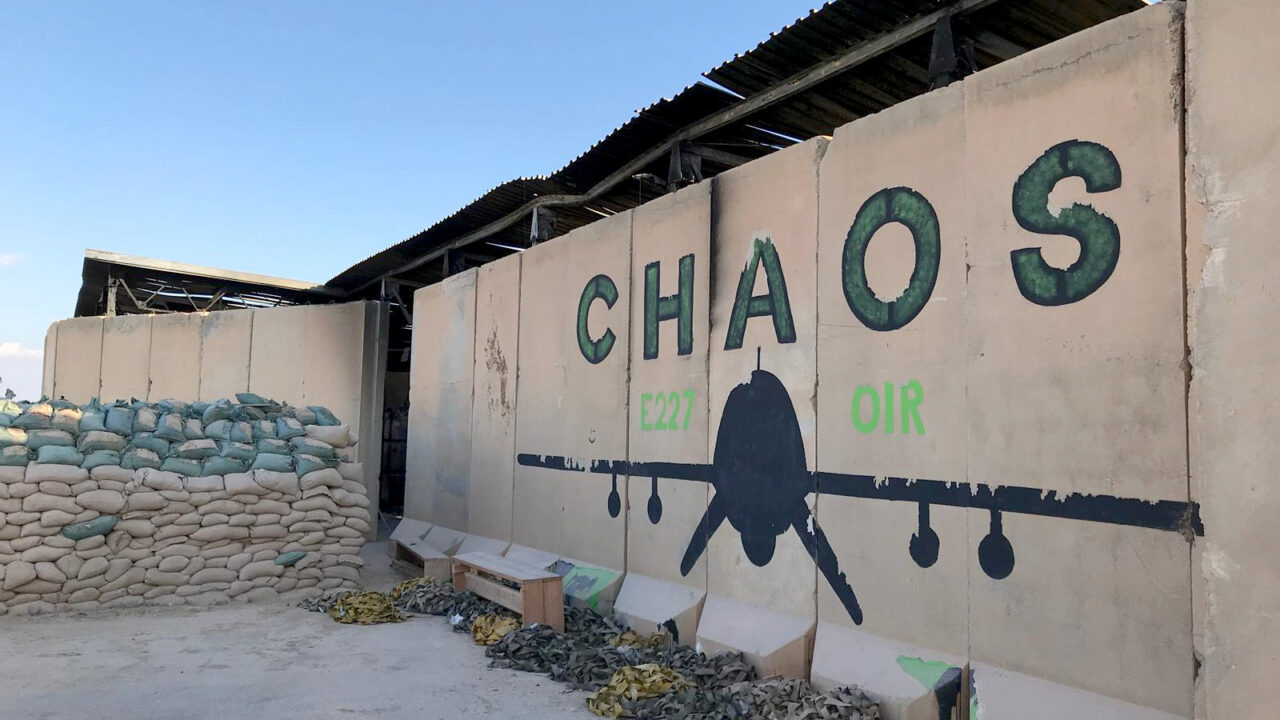Force of habit: Why the US risks being sucked into a military showdown with Iran
The US needs to swiftly re-energise diplomacy with Iran rather than be sucked into new tit-for-tat military strikes
Many Americans and Europeans applauded US President Joe Biden’s recent willingness to authorise military strikes against Iranian-backed armed groups in Syria. This show of force was needed, they argue, to establish the credibility of the new US administration and to deter future attacks on US and coalition forces. There is also a sentiment among Europeans that, because Biden is not Donald Trump, the United States can now conduct military strikes in a calibrated manner that avoids escalation. But, in the chaotic battlegrounds of the Middle East, this argument is a dangerous fallacy.
Without a rapid and substantive pivot towards an aligning diplomatic strategy on Iran – something that the Biden administration talks about but has not yet acted on in a meaningful way – there is an acute risk of wider military escalation. A series of recent incidents in Yemen, Saudi Arabia, and the Gulf of Oman indicate just how febrile the regional environment has become.
Despite its repeated vows to end America’s ‘forever wars’, the Biden administration did not take long to carry out its first military strikes. On 26 February, the US targeted Iranian-backed Iraqi armed groups, including Kataib Hezbollah operating on the Syrian-Iraqi border. The White House and European governments involved in the anti-ISIS coalition described this move as a proportionate response to attacks these groups allegedly carried out on a base in Erbil earlier that month. Some commentators argued that the strike carefully laid out red lines for Iran and Iranian-backed groups. But, within just five days, another rocket strike targeted coalition forces at Iraq’s Ain al-Asad base.
Clearly, these attacks against US and coalition forces deserve condemnation. But it should also be clear by now that – without a coherent political strategy for resolving tensions in Iraq and between the US and Iran – American strikes will only accelerate a cycle of tit-for-tat escalation that drags Washington and Tehran closer to a direct military clash. This is precisely the aim of those Iraqi militias that see military pressure as the most effective means of finally pushing the US out of Iraq. For some hardliners in Iran, the escalation game is useful for damaging the prospects of US-Iranian diplomacy and increasing Iranian leverage in advance of potential nuclear and regional negotiations, including those on Yemen.
The narrative that controlled US counter-escalation will set the rules of engagement in Iraq has repeatedly proved to be false. Like Trump’s assassination of Iranian General Qassem Soleimani, Biden’s recent show of force has done little to create meaningful deterrence and cement new rules.
Despite his pledges to readjust US policy on Iran, Biden is still essentially pursuing the Trump-era maximum pressure campaign, designed to force Tehran to make concessions first. This may in large part be driven by domestic pressure to maintain a firm position on Iran, and Biden’s prioritisation of a domestic agenda – for which he needs congressional support. But this is the same approach that Biden’s team criticised during his bid for the presidency, laying out the risk of conflict and stating that maximum pressure had only prompted Iran to expand its nuclear programme. In the lead-up to the November US election and for several weeks after Biden’s inauguration, Iranian leaders seemingly responded with a period of calm, with Iraqi armed groups dialling down their provocations. But the latest string of attacks suggests that Iran and these groups are growing frustrated by signs that US policy will remain largely unchanged.
Despite its repeated vows to end America’s ‘forever wars’, the Biden administration did not take long to carry out its first military strikes.
The US may feel a legitimate need to respond to attacks with military force but, unless it also presents a viable diplomatic offramp, the country risks being sucked into further escalation. And, while the Biden administration may claim that it is genuinely offering Iran a political track, its actions belie its words. Since becoming president, Biden has taken few steps to ease the pressure on Iran, even on the humanitarian front. This is despite widespread acknowledgement that the Trump administration – rather than Tehran – was initially responsible for undermining the 2015 nuclear deal.
The only way forward is to swiftly re-energise diplomacy with Iran, a track on which Europeans should play a major role given the impediments to US-Iranian engagement. They should initially focus on pressing both Washington and Tehran to take steps towards rejuvenating the nuclear agreement, without which regional de-escalation is impossible to imagine. The recent deal between Iran and the International Atomic Energy Agency (IAEA) to allow enhanced monitoring of Iranian nuclear facilities to continue – as well as the recent IAEA Board of Governors’ decision to not proceed with a poorly timed, European-led resolution to censure Iran – creates a three-month window for political talks, after which Iran will hold a presidential election.
Biden urgently needs to initiate serious confidence-building steps to revive the deal as part of a synchronised process, rather than continuing to insist that Iran return to full – or takes the first step towards – compliance with the agreement before the US follows suit. European states should help lead this process rather than take up positions that complicate efforts to reach an agreement between the US and Iran.
As members of NATO and the anti-ISIS coalition, European states also have an interest in ring-fencing the security situation in Iraq from broader US-Iran escalation, a development that could place European troops at risk. Here, progress on the nuclear front could serve as one pathway towards calm – as demonstrated by Iran’s seeming initial willingness to pressure Iraqi groups to dial down their attacks. But the determination of the US, Iran, and other regional actors to demonstrate that nuclear talks will not weaken their resolve on regional issues could, conversely, heighten tensions between them even as these discussions progress.
To avoid this outcome, Europeans should be pro-active in looking to de-escalate the situation on the ground, using contacts with Iraqi political and security actors – as well as assets such as the European Maritime Situation Awareness in the Strait of Hormuz mission – to prevent clashes between rivals. Europeans should also forge a close partnership with like-minded Middle Eastern states, to press both Tehran and Washington to desist from further escalation. These states include not just Oman and Kuwait but also the United Arab Emirates, which has recently displayed a new enthusiasm for diplomacy. Europeans should also make the most of their access to high-level Iranian leaders, aiming to widen the avenues for regional negotiations, including those overseen by the United Nations in Yemen.
The US and Iran may believe that they are adept at managing the escalation and counter-escalation game. But there have been multiple occasions when events have come close to spiralling out of control. The countries now have a slender opportunity to make a clean break with the destructive Trump era, but the pathway is narrowing quickly. Western actors need to respond smartly if they are to avoid ongoing escalation.
The European Council on Foreign Relations does not take collective positions. ECFR publications only represent the views of their individual authors.



